URBAN DECAY
Crumbling Yeoville — the inner-city Joburg neighbourhood that the government seemingly forgot
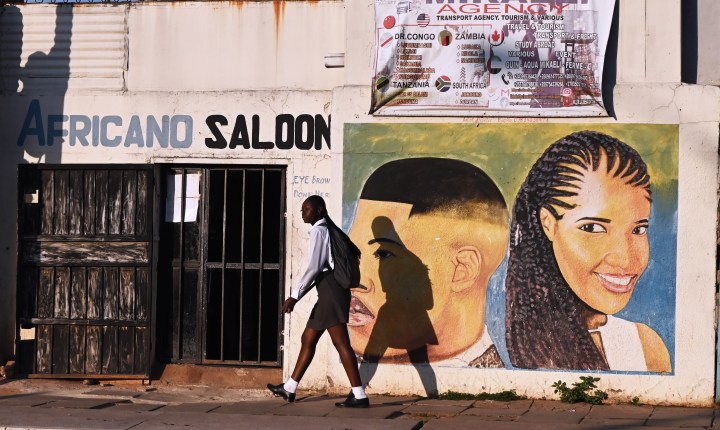
Yeoville residents and activists say corruption, xenophobia and government neglect are fuelling urban decay in the neighbourhood.
Residents, leaders, and community activists in Yeoville — a diverse, pan-African Johannesburg neighbourhood just east of the CBD — say that a combination of government neglect, service delivery failures and a high crime rate is making life in the neighbourhood increasingly difficult for its residents.
Kumi Naidoo, a human rights activist who has lived in Yeoville for 25 years, said government neglect and the neighbourhood’s resulting challenges represent a broader failure by the South African state to realise the Constitution’s promises of a progressive expansion of human rights throughout the country.
“Our Constitution says there should be a progressive realisation of rights, so… from where you start, you should be showing that you are broadening access to health, education, and so on,” Naidoo said. “But what you’re seeing in a community like Yeoville is a diminishing of social and economic rights.”
Read more in Daily Maverick: Yeoville residents frustrated by ‘sporadic’ water supply
Some parts of Yeoville have not had consistent running water for more than two months. Potholes have got so bad that some streets are no longer safe to drive down. And throughout the neighbourhood, garbage pickup is unreliable and illegal dumping sites are proliferating, posing health risks.
Yeoville then and now
Yeoville has undergone significant demographic and cultural changes in the past half-century. The neighbourhood was one of the first areas to be settled in Johannesburg in the late 19th century — it’s only three years younger than the city itself.
Under apartheid in the 20th century, it became a middle- and working-class hub for European immigrants, especially Jews. Under the Group Areas Act, Yeoville was zoned as a whites-only neighbourhood. However, it became a centre for leftist organising. Many members of the Communist Party lived and worked in Yeoville; in the 1960s, Nelson Mandela hid out in the neighbourhood.
Flo Bird, the chair of the Johannesburg Heritage Foundation, lived in Yeoville during the 1960s. At that time, she said service delivery was well-maintained, including garbage collection and road maintenance as well as health clinics and libraries.
But the police force was brutal and racist, often forcibly removing non-white residents who attempted to secretly live in Yeoville under the Group Areas Act.
Robert Simmonds, who has lived in Yeoville since 1988, said that back then he knew some coloured and Indian people who lived in Yeoville clandestinely, but it was more difficult for black people. He remembers the police evicting one of his neighbours, who was black, after someone in the building reported that he was living there.
Starting in the 1970s, the neighbourhood, like neighbouring Hillbrow, became a hub for culture and entertainment, Simmonds said. Arthouse theatres, bars, gay nightclubs, restaurants and music venues opened on Raleigh and Rockey streets, Yeoville’s central business strip. When he first arrived in Johannesburg in the 1980s, Simmonds said he was attracted to the neighbourhood’s unique cultural scene.
“As soon as I arrived, I decided that this is where I want to live — it was just such an incredibly interesting place,” he said. “There was just so much to do here, and so much stimulation in every way.”
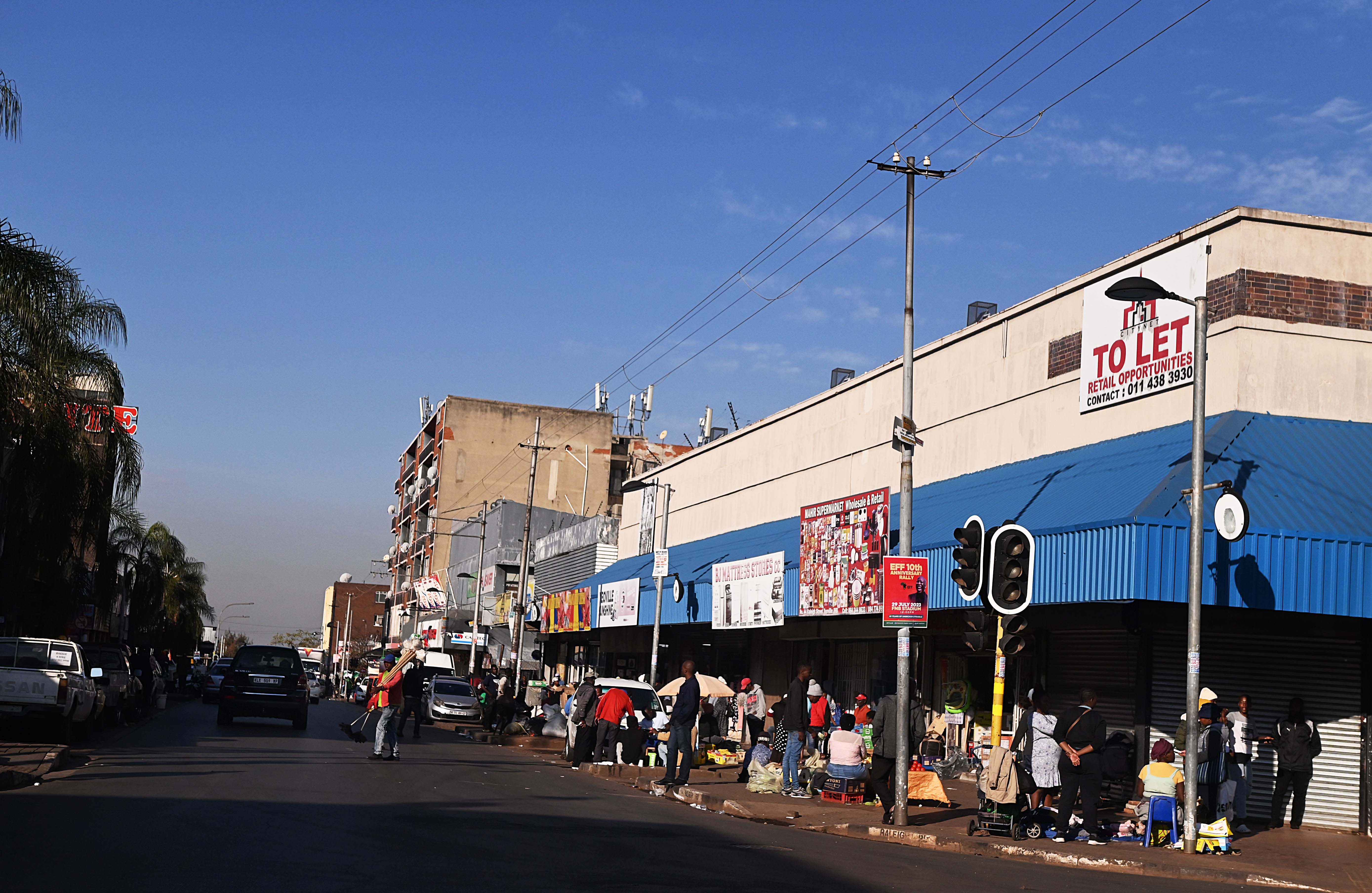
Although significantly changed, Raleigh and Rockey streets continue to be a vibrant strip of restaurants, businesses and nightlife in Yeoville. (Photo: Leon Sadiki)
Yeoville’s racial makeup started to change in the late 1980s. The apartheid government increasingly turned a blind eye to black, Indian, and coloured people moving into white-zoned areas, and Yeoville was one of the first neighbourhoods where residents increasingly flouted apartheid regulations in the years leading up to 1991, when the Group Areas Act was officially overturned and black, Indian, and coloured South Africans began legally living in previously white-zoned neighbourhoods.
From the 1990s into the early 2000s, Yeoville underwent two major demographic changes. First, after the Group Areas Act was overturned, numerous black South Africans moved into Yeoville. According to Maurice Smithers, a community activist and researcher who lived in Yeoville for many years, the neighbourhood flipped from 85% white in 1991 to more than 90% black in 1998.
Many left-wing, white activists who had lived in Yeoville before the fall of the apartheid government moved to Pretoria and Cape Town for new government and civil society jobs. Other white residents began to leave the neighbourhood, fearful about falling property values and political upheaval, or because they did not like living in an increasingly black area.
Then, into the 2000s, Yeoville’s population increased rapidly as refugees and immigrants from Zimbabwe, Nigeria, Mozambique, Malawi, Cameroon and Democratic Republic of the Congo moved into the neighbourhood. Today, South Africans make up fewer than half of Yeoville’s population — the neighbourhood is an emblem of Johannesburg’s status as a pan-African metropolis.
Corruption, crime and policing
Residents say that government neglect, service delivery failures and the resulting urban decay that afflicts Yeoville today have tracked to some degree with the demographic changes of the 1990s and 2000s, but accelerated significantly during the Covid-19 pandemic.
The Rev Tsepo Matubatuba, who has lived in Yeoville since 1996 and has been involved with several community activism initiatives, said that earlier this year, a task team with the Yeoville-Bellevue Ratepayers Association conducted interviews in the community and compiled a report detailing the most pertinent challenges facing Yeoville. They identified five:
- Lack of a sense of community;
- Unemployment;
- Service delivery failures;
- Substance abuse by young people; and
- Crime.
Matubatuba said many of these problems were caused by “dishonesty and corruption” in the government — whether that’s the police or state-owned enterprises like Eskom, Johannesburg Water, Pikitup and the Department of Roads and Transport.
He said several issues connected to crime and substance abuse were exacerbated by a corrupt police force that colluded with organised crime, refused to enforce bylaws and failed to keep residents safe. Often, he said, unapproved guesthouses were set up in the area, selling alcohol without a liquor licence or even operating as brothels and centres for drug dealing and other criminal activity.
Simmonds said that building hijacking — where organised crime syndicates seize control from landlords, sometimes violently, and begin collecting payment from residents — was another major issue in Yeoville.
“These are the social ills that are there in the community, which with the assistance of the municipality and the enforcement of the bylaws, we would be on top of them,” Matubatuba said.
“[But] when you see the police, they are so much in cahoots with those people, instead of coming and actually suppressing those things, you’ll see them hugging and sort of peeping through their windows like buddies.”
Many residents said high crime rates were making it harder to live in Yeoville. Today, there are no longer any bank branches operating in Yeoville, and even fast food chains like Nando’s and KFC have left because of the soaring crime rate.
This past year, Naidoo said his son told him he doesn’t feel safe bringing his children to Yeoville to visit him and his wife, their grandparents.
“That really, really, really hit me in the stomach,” Naidoo said. “It’s not that they never stopped seeing us… but I know that it’s less frequent than perhaps they would have liked to.”
Naidoo said he and his wife had looked into moving to another neighbourhood, but were shocked at how expensive the cost of living in other areas of the city had become. So, they decided that they at least wanted to put up a fight to change Yeoville before trying to leave.
Smithers said Yeoville residents had attempted to address rising crime with a community policing forum (CPF) and other measures, but such efforts were often hampered by a corrupt police force and local politicians who are suspicious of community organising that takes place outside the control of their party.
“This whole relationship between the CPF and the police has always been a bit fuzzy, with some police more willing to work collaboratively with the CPF than others, but very often being threatened by the CPF,” Smithers said.
This lack of collaboration has prevented the CPF from effectively addressing crime in Yeoville. Smithers said a similar dynamic had impacts on a variety of community-led initiatives. Grassroots community improvement projects with which he’s been involved have encountered hostility, suppression and suspicion from local councillors and party leaders.
“The ANC, in particular, [seems to be] willing to stop development rather than actually allow somebody else to be doing something,” Smithers said.
Water, roads and rubbish: a track record of neglect
In addition to crime and substance abuse, many residents cite service delivery failures as a major challenge facing Yeoville, with water supply issues, garbage collection and road maintenance ranking high among their concerns.
Simmonds has not had consistent running water in his flat for more than two months. The supply issue occurred when a technical problem at the Yeoville water reservoir on 30 March caused thousands of litres to flow into the streets and damage pumps. Initially, Johannesburg Water said residents in high-lying areas of Yeoville did not have consistent running water because of pump damage — the station was pumping with one pump instead of three, and pumps do not work during rolling blackouts.
Without water, residents have had to rely on water tankers, which come at different times every day — and sometimes don’t come at all — often without warning.
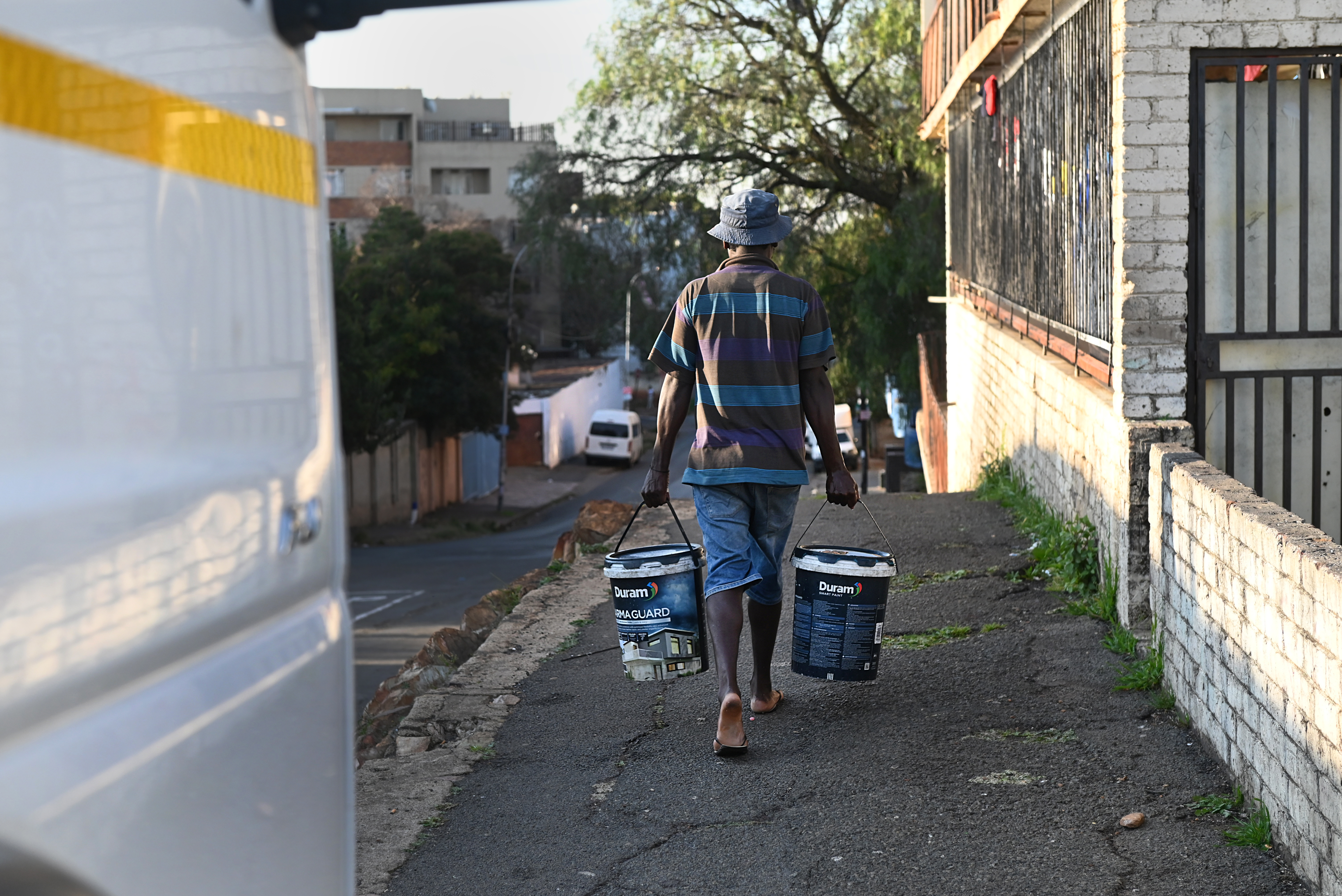
A Yeoville resident carries buckets from a water tanker to his flat during an outage. (Photo: Leon Sadiki)
Simmonds’ water was restored for a couple of days, after Johannesburg Water replaced the pumps, then went off again on 26 May. Johannesburg Water said the new outage was caused by “a motor failure” which means “the replacement pump is not delivering enough pressure and flow”.
However, some residents said unclear communication from Johannesburg Water had led them to wonder if vandalism or corruption were playing a role in the frequent water outages, especially given that water tanker syndicates profit when the water goes off.
Read more in Daily Maverick: Joburg’s latest water outages – residents ask: ‘Is this sabotage or secret shedding?’
Fidel Mbhele, a landlord in Yeoville, said Johannesburg Water had neglected to fix leaking pipes in the neighbourhood. In some areas, water constantly runs down the streets. In one of Mbhele’s buildings, Johannesburg Water recently sent a pre-termination notice to residents for an unpaid water bill.
“Of that water bill [of R560,000], R230,000 is just for one month… where there was a burst pipe that was left unattended for a long while,” Mbhele said. “That is the city’s fault and lack of response.”
Road maintenance is another major cause of concern. There are numerous potholes throughout the neighbourhood, making some streets difficult or impossible to drive down.
Some of these potholes are the result of Johannesburg Water projects. For example, Simmonds said, Johannesburg Water dug up a section of Percy Street two years ago, just down the road from where he lives, to investigate a leaking pipe. But they have still not filled it back in.
Garbage pickup is another major issue. Simmonds said that Pikitup, the state-owned enterprise in charge of waste management in Johannesburg, used to pick up garbage twice a week, but now only picks it up weekly, and in some areas doesn’t seem to be collecting garbage at all. Throughout the neighbourhood, unhoused people have begun burning rubbish — often tyres — to stay warm at night, contributing to extreme air pollution problems.
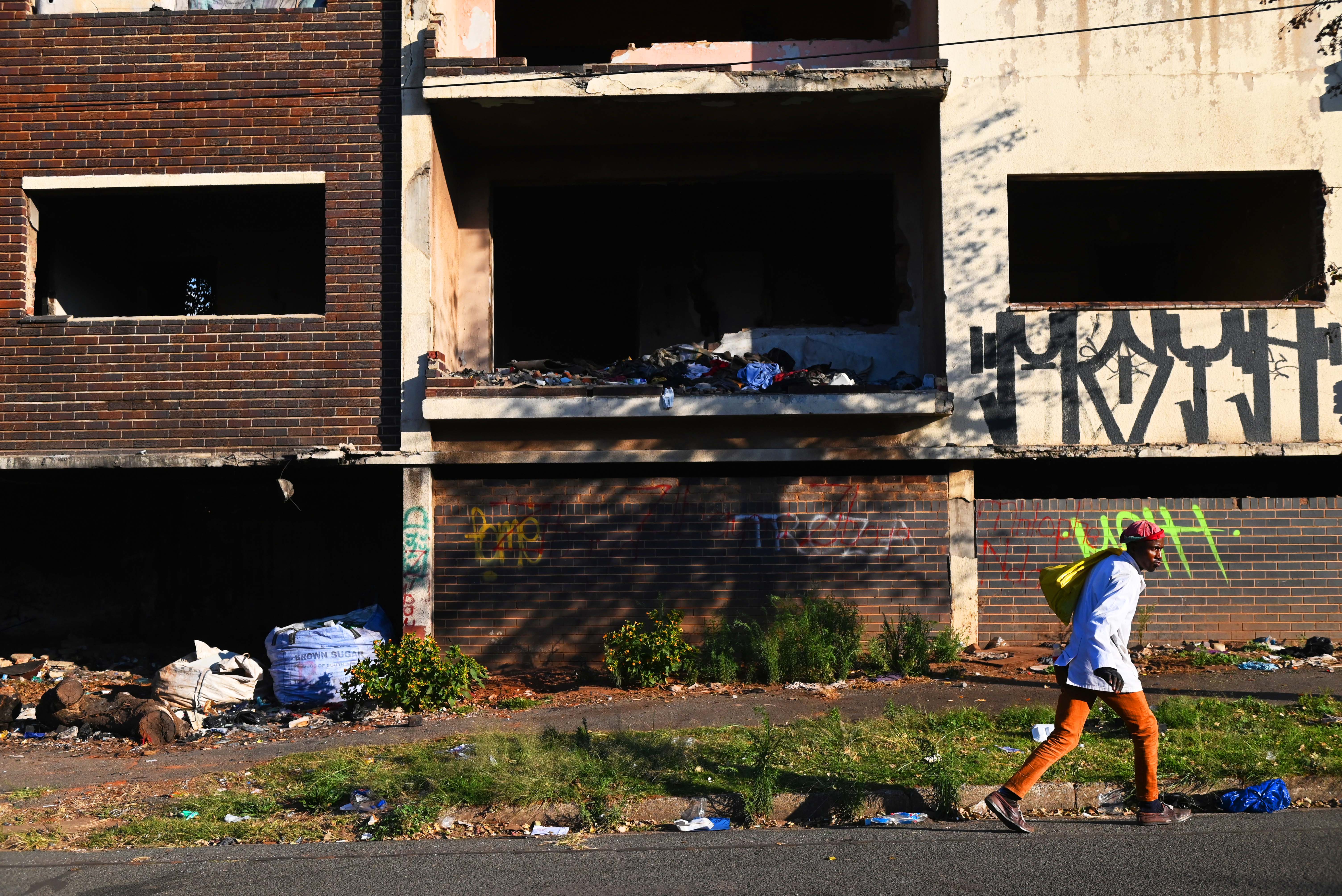
Illegal dumping sites outside a formerly hijacked building. (Photo: Leon Sadiki)
“When you burn tyres, that stench is unbearable, and what it does to your lungs,” Simmonds said. “[One night] we had to close all the windows, you couldn’t breathe. Because this sharp stench, it immediately shuts down your sinuses and it has you gasping for air.”
Simmonds has a lung condition, and he said the rubbish burning around his flat often aggravates it.
Several residents said they believe the government neglects Yeoville because of its large immigrant and refugee population, some of which is undocumented and thus cannot vote in elections.
“When people in more affluent suburbs complain about service delivery I suspect they are more likely to be shifted to the front of the queue because they have more financial clout and can afford legal options if required,” Simmonds said.
“In historically black townships there is a history of organising and protest, but in Yeoville there are immigrants, many of whom are likely undocumented and just trying to keep their heads down so as not to be noticed.”
Mbhele said falling property values had also contributed to government neglect. Many properties fall below Johannesburg’s threshold for rate payments, and thus the city does not collect much revenue from the neighbourhood.
“The combination of low revenue, no rates being charged and a migrant population… makes Yeoville less of a priority for the state,” he said. “You could argue that it is a population that cannot really complain and does not have a voice, so the state could stay absent.”
Community strategies for urban renewal
Although the state has failed to protect Yeoville’s residents from crime and violence and to provide them with essential services, community activists like Matubatuba, Naidoo and Smithers still have hope for the neighbourhood’s future.
Smithers said Yeoville’s connections to transit networks, its position right next to the CBD and its vibrant, pan-African character are all assets for its future growth and development. Naidoo said community activism and collaboration could lead to rejuvenation in Yeoville.
“I am cautiously optimistic that what is emerging is a sense that we have to start developing our own capability to address these issues,” Naidoo said. “You are seeing people picking up garbage… there’s a conversation going on about getting an independent security company that will mobilise citizens in Yeoville to pay like R50 per month to be able to employ this security company.”
Naidoo said community members need to do the best they can to pressure government institutions to provide services and take care of residents. Smithers said he would like to see local government implementing policies to encourage an atmosphere where people come together and solve problems.
“If they don’t create an enabling environment for the kind of developmental… community interaction to take place, if they don’t create a listening environment in which they are willing to listen to what communities are saying, then I don’t see how things will ever change,” Smithers said.
But at the same time, Naidoo said community members must step in and do things for themselves when the government fails to do so. For example, he said, communities could get together and begin repairing roads themselves. Although it’s technically illegal, it could function as a type of civil disobedience that exposes government hypocrisy and abandonment.
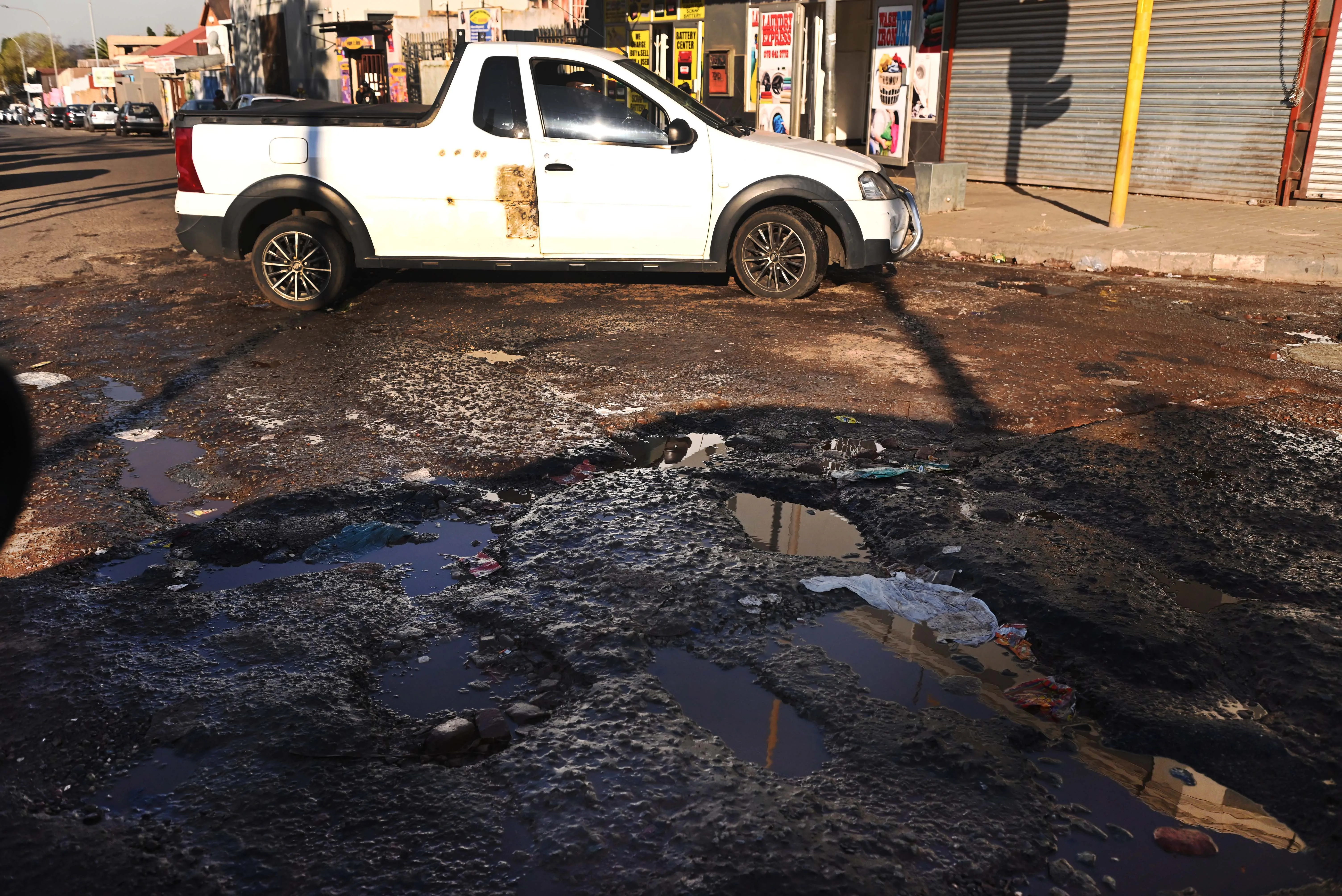
Large potholes and deteriorating roads make it difficult to drive down many streets in Yeoville’s central business area. (Photo: Leon Sadiki)
“We have to start looking at whether we mobilise community capability to do certain things that legitimately citizens should expect government to deliver,” Naidoo said. “But for this to have legitimacy and meaning… every single act that citizens do to actually fill the gap of an underperforming, corrupt local government… they have to make sure that everybody knows that people did it themselves.”
For example, he said, community groups could fix potholes, then paint them a different colour so that others know the government failed to do it and community members had to step in.
“We need a sort of creative… activism right now where we say, ‘If government thinks we are not good enough to get these basic services, we want to say to government that we think we are good enough to get these basic services, and since you will not provide it, we’re going to make a plan,’” Naidoo said.
However, Smithers said community organising in Yeoville would need to overcome apathy and internal divisions — which are often fuelled by xenophobia — to be successful. Many immigrants in the neighbourhood have faced harassment and violence, and some community initiatives in the past have excluded non-South African residents.
Naidoo said he’s hopeful for change, because he sees a growing number of people mobilised to collaborate and look for solutions to nationwide problems, many of which are reflected in Yeoville’s present-day challenges.
“There are many, many, many people in our country today who are desperate at what they’re seeing as a collapse and a decay in the whole country,” he said. “And they’re all asking the question: ‘Can I continue to sit on the sidelines and look in?’ ” DM




















I certainly mourn for Yeoville – it was an amazing place to live. Illegal drinking spots were the beginning of the end- 10 am and the drinking began attracting all sorts of the bad behaviour. It might be Pan-african, but illegal immigration is part of the problem. Many criminals are arriving here because of lax policing and great opportunities: who had ever heard of a hijacked building before? I do hope Yeoville can be saved- the great mixture of low rise buildings and easy access makes it a great place to live. Ask Tony Leon – he was the very active councillor – I wonder what the local councillors do now. Clearly not much.
🥲🥲🥲🥲🥲I used to live and work there and occasionally still drive through and the level of decay is just heartbreaking. It’s like the land that the CoJ forgot. I am pleased that I am not a member of the ANC so that they would name a road after me. Unlike Joe Slovo who is memorized by Joe Slovo Rubbish Dump. It’s past a disgrace it’s just uncaring malignant neglect. As a result and if the bureaucracy ever gets round to doing something about it the costs will higher than if they prevented the wholesale destruction which is now evident in the first place. However it’s seems ANC policy to do this over and over and over again like Eskom, water treatment plants, hospitals etc. When, if ever, will the bus system between Alex and the CBD start operations? The bus stops are built the roads destroyed as a result and the millions dispensed but not 1 single bus has ever departed a bus stop on the route. Another miracle of government excess stupidity and neglect. It’s just heartbreaking 💔.
I lived in Yeoville for about 2 decades and only left when my daughter’s and my friends refused to visit the area any longer. I loved it and my wonderful flat on top of the ridge behind the water towers with the most spectacular views in the city. It connected me to my past as may parents were raised in the next door Berea suburb but social life for them was the Yeoville swimming pool which I’m sure is not in working condition any longer. It is not so much the government or the state that has overseen the decay in Yeoville but a succession of administrations in the Johannesburg city council which have been responsible for allowing the decay. Where the state or government may play a role at the moment would be in the feeling that they don’t need the votes in Yeoville as so many people there are not South African citizens. Water, garbage collection, and other service delivery issues have been the province of the DA and ANC administrations who frankly never gave a damn and still do not. And that is aside from the Xenophobia visited on the suburb by one mayor along with many South African residents there. It’s a pity. It was once a wonderful place to live.